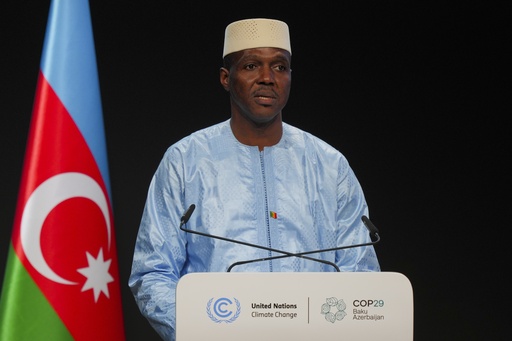
BAMAKO, Mali — On Thursday, Mali’s military junta named a new prime minister, elevating a military general to the position just one day after dismissing his predecessor for voicing opposition to the ruling regime.
This decision further entrenches power within the military leadership in Mali, which has been under military rule since a coup in 2020, followed by another coup the subsequent year.
Choguel Maïga, who previously held the prime ministerial role and had expressed concerns about the junta delaying the 2024 presidential elections, was removed from his position through a presidential decree issued by General Assimi Goita, the leader of Mali, and broadcast on the state-run television channel ORTM.
General Abdoulaye Maïga has now been appointed as the new prime minister. The announcement was made by Alfouseyni Diawara, the secretary-general of the Malian presidency, on ORTM. It’s worth noting that Abdoulaye Maïga and Choguel Maïga, though sharing a surname, are not related.
With Abdoulaye Maïga’s new role, it marks a significant consolidation of military control over all three branches of government in Mali, encompassing the presidency, the National Transitional Council (the legislative body for the transition), and the office of the prime minister.
At 43 years old, Abdoulaye Maïga previously held various roles within the government, including minister of territorial administration, government spokesman, and deputy prime minister.
Analysts believe that this selection indicates an intensification of military influence in the nation’s governance. Ulf Laessing, head of the Sahel program at the Konrad Adenauer Foundation in Mali, remarked that general Maïga’s close alignment with President Goita hints at a desire for a loyal ally, especially in light of potential elections on the horizon. Laessing also noted that Choguel’s removal was influenced by his interest in positioning himself as a candidate for the upcoming elections.
Though not among the military officers who orchestrated the 2020 coup, Abdoulaye Maïga swiftly became integrated into the circle of those managing the state.
He has a reputation for his aggressive stance against France and the previous U.N. mission in Mali, known as MINUSMA. Recently, during the U.N. General Assembly in September, he criticized Algerian diplomats for their claims regarding civilian casualties caused by the Malian armed forces near the border.
Since assuming control, the military junta has curbed freedoms of expression significantly, with numerous politicians and civil society leaders facing arrest for opposing the military government.
